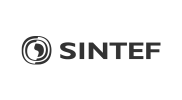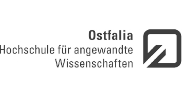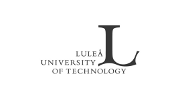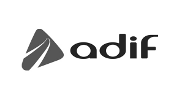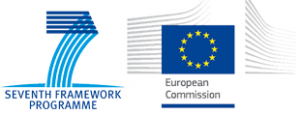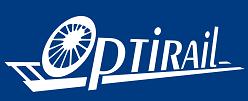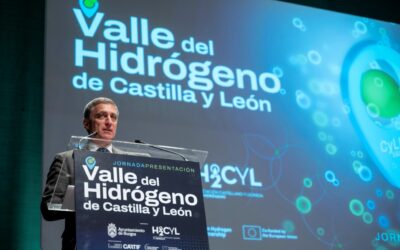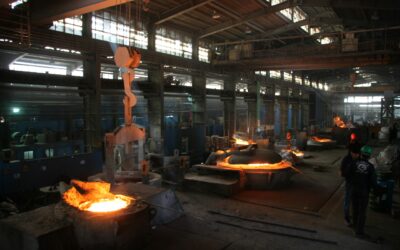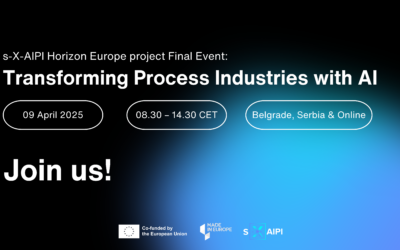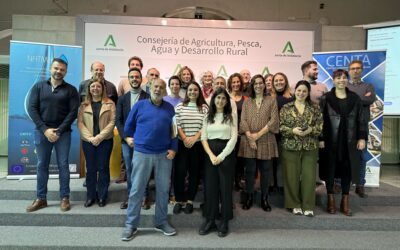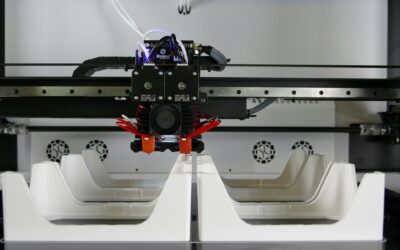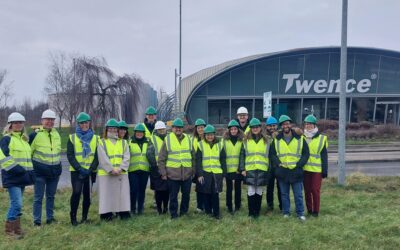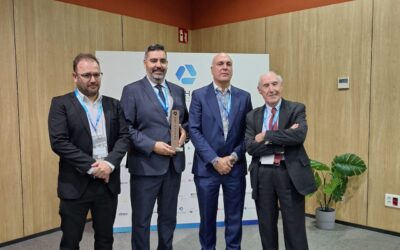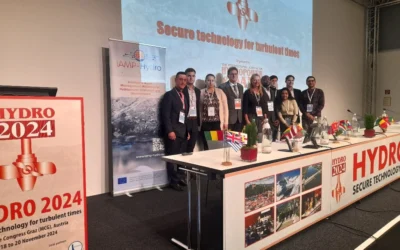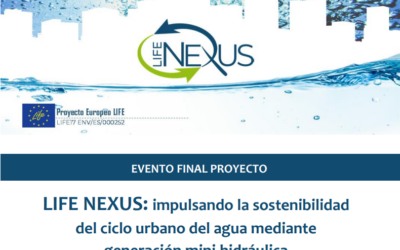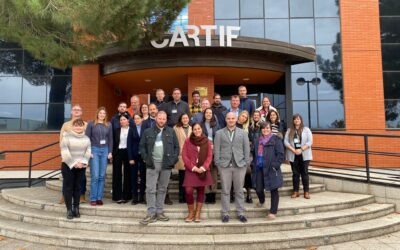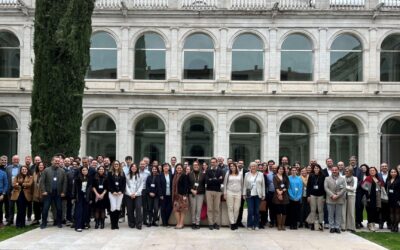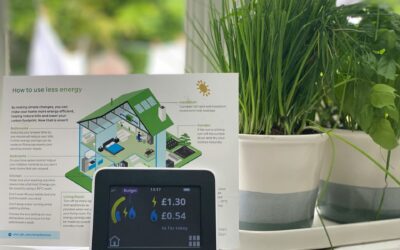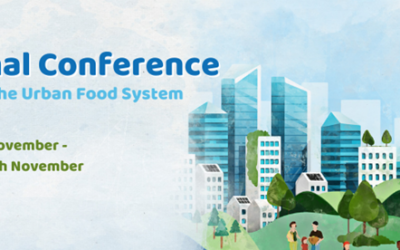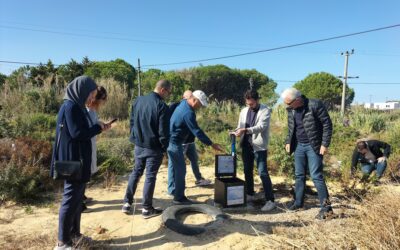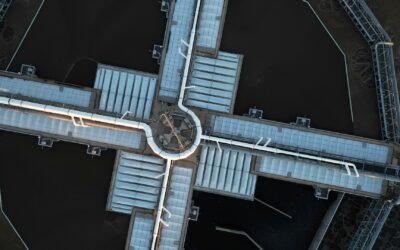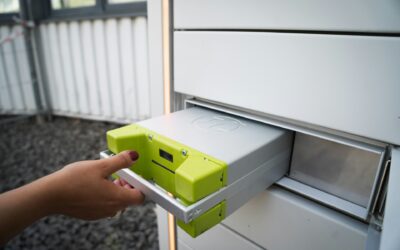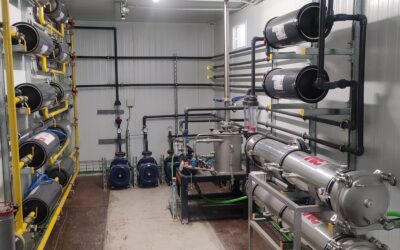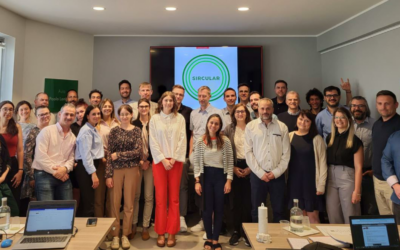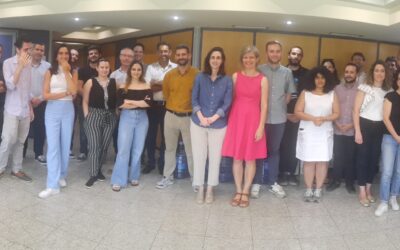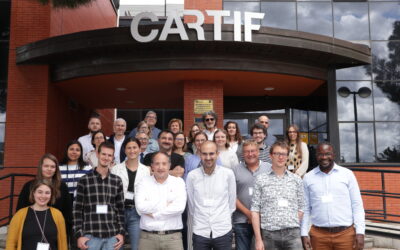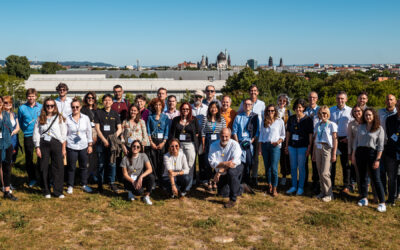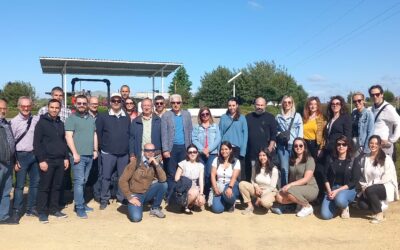CARTIF PROJECTS
OPTIRAIL
New landfill exploitation techniques to improve biogas production and facilitate waste gas recovery
Description
The OPTIRAIL project (“Development of a Smart Framework based on Knowledge to Support Infrastructure Maintenance decision in Railway networks”) developed a comprehensive tool, based on Fuzzy and Computational Intelligent techniques, to manage all the elements that are relevant for track maintenance, predicting future conservations needs with optimal allocations of resources.
CARTIF assumes the technical coordination of the project and leads the development of work packages dedicated to conceptual design of the tool and dissemination. In addition, CARTIF participates in other work packages applying Computational Intelligence techniques to the domain of railway infrastructure maintenance.
Objectives
- Develop new smart tools that will help to optimize railway maintenance operations ensuring higher railway availability, better cross-border coordination and improved efficiency.
- Ensure a more effective planning of the management and activities of infrastructure maintenance based on expert knowledge accumulated over years of experience and to the information stored in the monitoring and maintenance management systems.
Actions
- Analyse specifications and requirements for efficient, reliable and sustainable maintenance of the railway systems.
- Analyse transferability of concepts, ideas and solutions from other sectors.
- Design and validate smart and collaborative tools based on fuzzy logic that become decision support.
- Demonstrate usability of the project outcomes on existing rail network.
- Define synergies and best practices between the cross-border networks.
Expected results
-
Open smart framework based on knowledge for maintenance management to facilitate effective and efficient making decision in maintenance of railway networks.
-
Methodologies for infrastructure deterioration and maintenance decisions modelling: expert knowledge and data from monitoring systems modelled in order to take advantage of these organizational assets.
-
Knowledge based tool focused on Fuzzy Logic and Computational Intelligence techniques developed and validated in two case studies.
Partners:
Video presentation of the project
Networking
Technology of the information and communication projects:
PROTEIN4IMPACT
PROTEIN4IMPACT assesses the nutritional health, safety, and quality aspects, as well as the environmental and socioeconomic impacts, of novel protein foods derived from unconventional sources.
CYLH2VALLEY
CyLH2Valley aims to develop and demonstrate a large-scale Hydrogen Valley in Castilla y León region, encompassing mobility, industry and energy applications.
The Castilla and Leon Hydrogen Valley brings together experts and companies from the sector to analyse the take-off of green hydrogen in Spain
National experts and companies from the sector met today at the Fórum Evolución in Burgos in a conference open to the public to explain the Castilla and Leon Hydrogen Valley Project analyse the Spanish infrastructure and highlight several success stories of European...
PROCTWIN
PROCTWIN aims to develop a demonstration platform to predict and optimise the use of multiple stages in steelmaking.
s-X-AIPI Project shows AI advancements in industrial processes in its final event
The s-X-AIPI project, funded by the Horizon Europe program, will hold its final event on April 9, 2025, at the Sava Centar, with online participation available. This workshop will highlight how self-improving artificial intelligence (AI) is transforming process...
Bi0SpaCE
bi0SpaCE accelerates the digital and circular transformation of Europe’s bio-based industries through Digital Product Passports (DPP) enhanced with Industry 4.0 technologies.
NATMed Project holds third co-design session in Spain to discuss use of the Spanish Case Study
The consortium of the NATMed project hold the last 11 February the third co-design session in the facilities of the Department of Agriculture, Fisheries, Water and Rural Development of Junta de Andalucía, in Sevilla (Spain). During this session, the partners discussed...
DIAMETER
In the DIAMETER project, the physical-experimental results of the 3D metal additive manufacturing processes will be contrasted with computational simulations, with the aim of predicting the behaviour of the parts under different modifications of the process.
ENERGYGUARD
The EnergyGuard project will create an innovative test platform for artificial intelligence (AI) in the energy sector, integrating five European test centres with a green HPC infrastructure.
FertiCovery Project, launched to explore best available technologies for alternative fertilisers
The European FertiCovery project consortium held its kick-off meeting this week in Enschede (Netherlands) to launch its mission to advise policymakers and stakeholders on alternative fertilising products. The aim of the project is to ensure balance nitrogen and...
FERTICOVERY
FertiCovery aims to identify and analyze technologies for recycling fertilizers from secondary raw materials, promoting balanced nitrogen and phosphorus flows while enhancing soil health within ecological limits
UNITED CIRCLES
United Circles seeks to transform various types of urban waste into useful resources by applying the concept of industrial-urban symbiosis.
DRAGADOS and CARTIF win international recognition at the NCE Tunnelling Awards 2024 in London
The construction company DRAGADOS, with the technical collaboration of the CARTIF Technology Centre, has obtained international recognition in London by winning the prestigious New Civil Engineering Tunnelling Awards 2024 for the SOGUN system, a Guinte Robot Geometric...
AGRED
AGRED seeks to generate a series of tools aimed at facilitating the management of distribution networks and networks of sensors and equipment related to energy management.
The vertical garden of the URBAN GreenUP project returnos to the centre of Valladolid
Valladolid City Council and CaixaBank have announced a collaboration agreement to install part of the vertical garden of the URBAN GreenUP project on the façade of the bank’s building, located on Regalado Street, on the corner of Teresa Gil, in Valladolid. The...
CARTIF joins the Net-Pharma Hub as the first and only technology centre of the group
CARTIF technology centre has joined the Net-Pharma Hub, the leading European ecosystem dedicated to fostering innovation, collaboration and networking in the pharmaceutical industry. This alliance reinforces CARTIF’s commitment to technological excellence and applied...
The H-HYDROFLEX Project stands out at HYDRO 2024 with its innovative proposal for hybridisation in hydroelectric power plants
CARTIF participated last week in the International Conference HYDRO 2024, one of the most important events in the field of hydropower and renewable energy, which took place in Graz (Austria). Sergio Rodríguez Carro, researcher of the Energy division, was in charge of...
CLIMRES
CLIMRES aims to foster a ‘Leadership for Climate Resilient Buildings’, by addressing the identification and systematic categorisation of buildings’ vulnerabilities and estimating their impact in the buildings’ ecosystem considering the interlinkages within the urban context.
The consortium of the LIFE NEXUS project will meet on 26 November in León where they will highlight the sustainability of the water cycle.
The LIFE NEXUS project consortium brings to an end five years of research, development and innovation with a final event to share the most outstanding advances and results in mini-hydro generation within the urban water cycle. The meeting will take place on Tuesday 26...
SIRCULAR
SIRCULAR seeks to transform the construction sector into a sustainable, low-carbon industry through decarbonisation strategies. Its main objective is to reduce carbon emissions by minimising reliance on virgin materials and exploring low-carbon alternatives, such as recycled materials.
ICARUS
ICARUS will represent a breakthrough in the research and demonstration of new technologies to upgrade Secondary Raw Materials ensuring similar quality as primary raw materials, of three waste streams to improve circular economy principles in several intensive industries with its implementation in the construction sector
SIRCULAR project holds its first General Assembly in CARTIF to boost the future of sustainable building
CARTIF technology centre, one of the partners of the project, holds the first General Assembly of the European SIRCULAR project on 13 and 14 November. During this meeting, some experts and collaborates met to move forward research on sustainable building solutions....
The Circular Economy project United Circles, led by CARTIF, starts up in Valladolid, seeking to reduce waste by favouring industrial and urban symbiosis
The United Circles project consortium met today at the San Agustín Cultural Centre in Valladolid to kick off one of the most ambitious proposals in the field of circular economy in Europe. This project, led by CARTF, arises from the need to reduce the generation of...
iPhotoCult
iPhotoCult has as objective to design, develop and validate innovative and sustainable photonic solutions for the preservation of Cultural Heritage. These solutions, applicable on remote or in situ, include advance diagosis tools and a platform of services on the cloud that allos the precise monitorization of buildings, monuments and artefacts
The SMARTeeSTORY Project analyses the latest advanced in energy efficiency of historic non-residential buildings
On 6 an 7 November, the CARTIF Technology Centre hosted the general monitoring meeting of the European SMARTeeSTORY project. During this meeting, the partners presented the latest advances of the project, as well as analysing the next steps to be taken in its roadmap...
META BUILD
METABUILD overall vision is to operationalise energy efficiency first principle in the practical contect of buildings towards the decarbonisation of the EU building stock.
FUSILLI Project holds its final conference in Turkey to discuss the key steps to transform the urban food system
The FUSILLI European Project comes to an end after four years of research how to transform the urban food system, and to celebrate it, the project consortium will meet the next 19 and 20 November in Nilüfer (Turkey) to celebrate its final conference. The event will be...
The NATMed Project holds its fourth regular meeting in Turkey to evaluate its Case Study
The NATMed project consortium has met 1st and 2nd October in Ténedos Island (Turkey) to hold its fourth regular meeting. During these days the partners have evaluated the overall progress of the project, and beside this, they have the opportunity to visit the Turkish...
Controlled Environment and Plant Health Pilot (PAC-SAVE)
CARTIF ProjectsPAC-SAVEControlled Environment and Plant Health PilotDescriptionCARTIF's PAC-SAVE project aims to develop a Controlled Environment and Plant Health Pilot to investigate the resilience of crops and forests to climate change. Through advanced technologies...
Waste treatment for energy and material recovery in industrial processes
Increase the extractability of protein sources and other compounds of nutritional interest, naturally present in by-products generated in the transformation processes of the food industry, through the use of “green technologies” of pre-treatment such as extrusion
High-pressure processes for the generation of high value-added products
Increase the extractability of protein sources and other compounds of nutritional interest, naturally present in by-products generated in the transformation processes of the food industry, through the use of “green technologies” of pre-treatment such as extrusion
Advanced technologies for the development and characterisation of 3S food: healthy, sustainable and safe
Increase the extractability of protein sources and other compounds of nutritional interest, naturally present in by-products generated in the transformation processes of the food industry, through the use of “green technologies” of pre-treatment such as extrusion
Lifetime characterisation, safety and recycling processes in batteries
CARTIF Projects Lifetime characterisation, safety and recycling processes in batteriesDescriptionThe general objective of this action is to develop technologies and strategies to improve the characterisation of the useful life of batteries, increase their safety and...
VALORA-0
VALORA-0 is focused on the valorization of waste currents of CAMPOFRÍO FOOD GROUP.
CARNIVAL
CARNIVAL aims to generate new scientific and technological knowledge to create added value for waste and by-products from the meat sector, particularly in the sheep and pig sectors.
Membrane Contactors Pilot Plant
Technological offer Membrane Contactors Pilot PlantDescription Capacity to treat up to 50 m3/h of gas flow. Componentes Clean stage: condensator and active carbon filters. 7 bars ATEX compressor Membrane contactors: 5 lineas x 2 contactor/line (each lina with capacity...
SGA2-NZC
NetZeroCities (NZC) project’s main objective is to support cities selected by the European Commission to achieve climate neutrality by 2030, in line with the 100 Climate Neutral and Smart Cities Mission.
THUNDER
THUNDER project aims to overcome existing barriers hampering a wide adoption of DCs waste heat recovery strategies, providing an innovative, efficient and cost attractive Seasonal Thermal storage based on Thermochemical Materials
SCO2OP-TES
SCO2OP-TES focuses on the development of technologies for storing electricity in the form of heat, which is then converted back into electricity (P2H2P – power-to-heat-to-power).
HYDRA
HYDRA focuses on understanding and addressing the potential impact of widespread hydrogen use on climate, environment and society. The project assesses a scenario of high hydrogen penetration in the energy mix.
EMERGE
EMERGE aims to provide African policy makers, academics, investors and citizens with tools and knowledge to increase clean energy and sustainable resource use, reducing cultural and socio-economic gaps.
The European SIRCULAR project aims to transform the construction sector through decarbonisation strategies
The European consortium met on 5 and 6 June in Genoa (Italy) to celebrate the launch of the SIRCULAR project. This initiative, which will last three and a half years, will seek to turn the construction sector around and move it towards a more circular and sustainable...
The European CLIMRES project aims to lead the retrofitting of climate-resilient buildings
The CLIMRES project consortium held its kick-off meeting on 4 and 5 June in Athens (Greece). This project, led by SingularLogic, arise from the need to change the course of the European housing stock and retrofit buildings to achieve climate resilience. During its...
The PHENOLEXA Project closes its three years of research on the development of a cascade biorefinery of agricultural secondary flows
The PHENOLEXA consortium met in full on May 15 and 16 at the CARTIF technology centre facilities to hold the last meeting of the project and thus recapitulate the results achieved after three years of research and development. This initiative arose with the aim of...
The MOBILITIES for EU project holds its second General Assembly in Dresden (Germany) coinciding with the IEE 6G Summit and the Neutralpath project
The MOBILITIES project consortium met this week in Dresden, Germany, to hold its second General Assembly and review the team’s first steps since its launch earlier this year. One of the main topics of the meeting has been the study of the situation of the Leading and...
The NATMed project holds its third regular meeting in Seville to evaluate the development of the Spanish Case Study
The NATMed project consortium has met this week at the Consejería de Agricultura, Pesca, Agua y Desarrollo Rural de la Junta de Andalucía, in Sevilla, to assess the progress of the project and, in particular, of the Spanish Case Study and the status of the...
RURBANIVE
RURBANIVE will establish a novel rural/urban innovation framework, supported by technical and social innovations to enhance territorial governance and existing policy tools.
MOBILITIES FOR EU
MOBILITIES for EU aims to accelerate the transformation of cities towards climate neutrality through innovative solutions in passenger and freight mobility.


